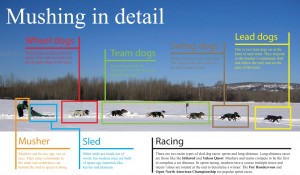A couple days ago Will Johnson emailed and asked if he/PRISM could interview me about my Malahat win and a few of my stories. Will is a UBA Writing MFA student, and went through UVic the same time as me, though we never shared a class. You can find the interview at his site here: Interview with writer Erin (Frances) Fisher or at PRISM here or scroll down and read it here.
In other news, I’ve just finished editing my novella. It doesn’t have a home yet, but because it’s just under 20,000 words I’m hoping I’ll be able to convince some journal or other to adopt it. If not, it probably won’t be seen until I put together a collection of short/long stories. The title is currently under review, but here’s a hint about the subject matter:
And here’s the interview with Will Johnson…
Last year, Victoria writer Erin Fisher won first place in PRISM international’s fiction contest for her story “Bridges”. This year, Fisher repeated that success by taking the top spot in The Malahat Review’s fiction contest. PRISM caught up with Erin recently, to discuss her recent successes and her plans for the future.
PRISM: Your piece “Apiculture” just won The Malahat Review’s Open Season Awards. Congratulations! You’re having quite the year–how does it feel?
ERIN FISHER: Pretty great. It doesn’t change any of the work that must be done, but it provides a boost to energy.
P: Tell us about “Apiculture”. What was your process while writing it, and what were you hoping to accomplish with this story?
EF: “Apiculture” underwent many, many rewrites. I wanted a child narrator who was being built by the events that occur in the story, as well as the depth that is added by the retrospective, but I didn’t want the future time/place/situation of the narrator mattering. I knew the layers and plot of the story before I started writing, but it took a lot of tinkering to get it working properly.
P: Your writing is very experimental/edgy. Why do you feel drawn to non-traditional styles of story-telling?
EF: I’m not sure. I enjoy reading all types of stories, and have tried a less ornamental style of writing, but it came off wrong. Every story (so far) has had a different way of forming in rough draft, but in the end each one comes down to me and it and scissors and a lot of floorspace. Being flexible with structure allows the story’s form to help solve problems. On content: it can be more fun to get to the core of the piece through a little weirdness.
P: Both your prize-winning stories have a strong theme of childhood in them. Is this a coincidence, or is this a theme that you’re interested in continuing to explore?
EF: I’m interested in child narrators because they are in the process of becoming people, and (like I said above) instead of having a wealth of experience behind them, children are being built by the events that occur in the story. Although I have a few drafts of stories without kids, I think that (with or without intent) there will be some aspect of childhood in most of my pieces.
P: You also published a story in Granta this year. Can you tell us a little bit about it?
EF: Sure. Granta published my piece “Suite in Dark Matter” last November. It was published online alongside issue 117 Horror, which (after the shock of acceptance) surprised/amused me. The story is structured after a baroque keyboard suite, and the main character is a pianist who, while digging through compost at night, discovers an angel. In writing this piece I tried to work the rococo style of a traditional suite into the writing. The choice in using the suite structure came down to the content (lapsed pianist) and the POV switch at the end.
P: How long have you been a writer? When did you start submitting your work to literary journals?
EF: I became attached to writing about five years ago. I went to UVic intending to further study composition (music) and took “Form and Structure of Short Fiction” to compare structural styles. After that, I just kept writing.
P: Who are some Canadian authors you admire?
EF: Annabel Lyon, of course Alice Munro, Miriam Toews, William Gibson’s “Burning Chrome”, and too many more. I just finished reading “The Sisters Brothers” by Patrick deWitt–this is one of those books I wish I wrote.
P: I understand you’re currently trying to get into an MFA program for Creative Writing. What else is on the horizon for your writing career? And what are you currently working on?
EF: I’ve been teaching at the Victoria Conservatory of Music for the last six years, and will be continuing on there. I’m planning on doing an MFA either distance or in Victoria, but besides that–just keep writing. In the works: I’ve just finished a novella, and have started the early map of a novel.

